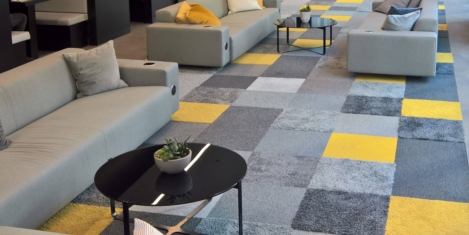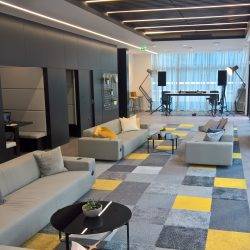To provide the best experiences, we use technologies like cookies to store and/or access device information. Consenting to these technologies will allow us to process data such as browsing behaviour or unique IDs on this site. Not consenting or withdrawing consent, may adversely affect certain features and functions.
The technical storage or access is strictly necessary for the legitimate purpose of enabling the use of a specific service explicitly requested by the subscriber or user, or for the sole purpose of carrying out the transmission of a communication over an electronic communications network.
The technical storage or access is necessary for the legitimate purpose of storing preferences that are not requested by the subscriber or user.
The technical storage or access that is used exclusively for statistical purposes.
The technical storage or access that is used exclusively for anonymous statistical purposes. Without a subpoena, voluntary compliance on the part of your Internet Service Provider, or additional records from a third party, information stored or retrieved for this purpose alone cannot usually be used to identify you.
The technical storage or access is required to create user profiles to send advertising, or to track the user on a website or across several websites for similar marketing purposes.
 The UK now ranks tenth globally when it comes to happiness in the workplace. Austria (690), Spain (682), United States (719), France (672) and Germany (675) are all above the UK in rating workplace happiness. To date, over 10,000 people globally have taken the free Workplace Happiness Survey by Engaging Works which aims to provide practical and personalised advice to help improve wellbeing at work and to increase productivity and overall happiness within the workplace. The Workplace Happiness Survey asks 26 questions and then delivers a score out of 1000.
The UK now ranks tenth globally when it comes to happiness in the workplace. Austria (690), Spain (682), United States (719), France (672) and Germany (675) are all above the UK in rating workplace happiness. To date, over 10,000 people globally have taken the free Workplace Happiness Survey by Engaging Works which aims to provide practical and personalised advice to help improve wellbeing at work and to increase productivity and overall happiness within the workplace. The Workplace Happiness Survey asks 26 questions and then delivers a score out of 1000.








 Not-for-profit, wellbeing provider Westfield Health has launched an online initiative to support workplace health and wellbeing which will educate employers across the UK on how they can make a positive difference within their organisation. With over half (54 percent) of businesses reporting that they don’t have any measures in place to support the health and wellbeing of their staff,
Not-for-profit, wellbeing provider Westfield Health has launched an online initiative to support workplace health and wellbeing which will educate employers across the UK on how they can make a positive difference within their organisation. With over half (54 percent) of businesses reporting that they don’t have any measures in place to support the health and wellbeing of their staff, 




 The UK’s regional cities are competing harder than ever with London to become the location of choice for the tech sector. According to CBRE’s report
The UK’s regional cities are competing harder than ever with London to become the location of choice for the tech sector. According to CBRE’s report 




 The economic performance of UK cities is increasingly dependent on the skills of their workforce. Cities across the UK face the challenge of both attracting and retaining high-skilled talent. The
The economic performance of UK cities is increasingly dependent on the skills of their workforce. Cities across the UK face the challenge of both attracting and retaining high-skilled talent. The 














March 21, 2019
Interiors are not enough to win the war for talent
by Ben Capper • Comment, Workplace design